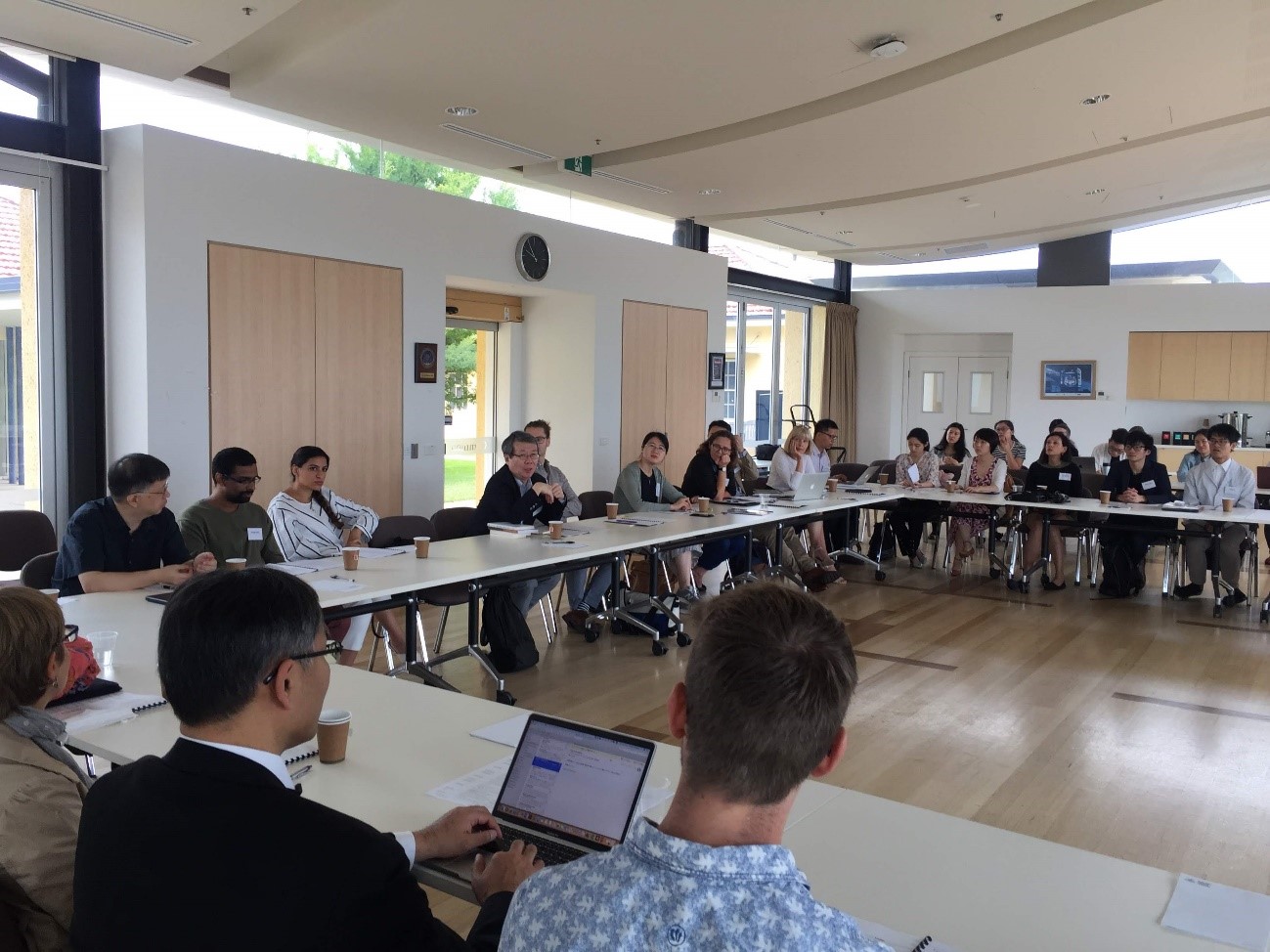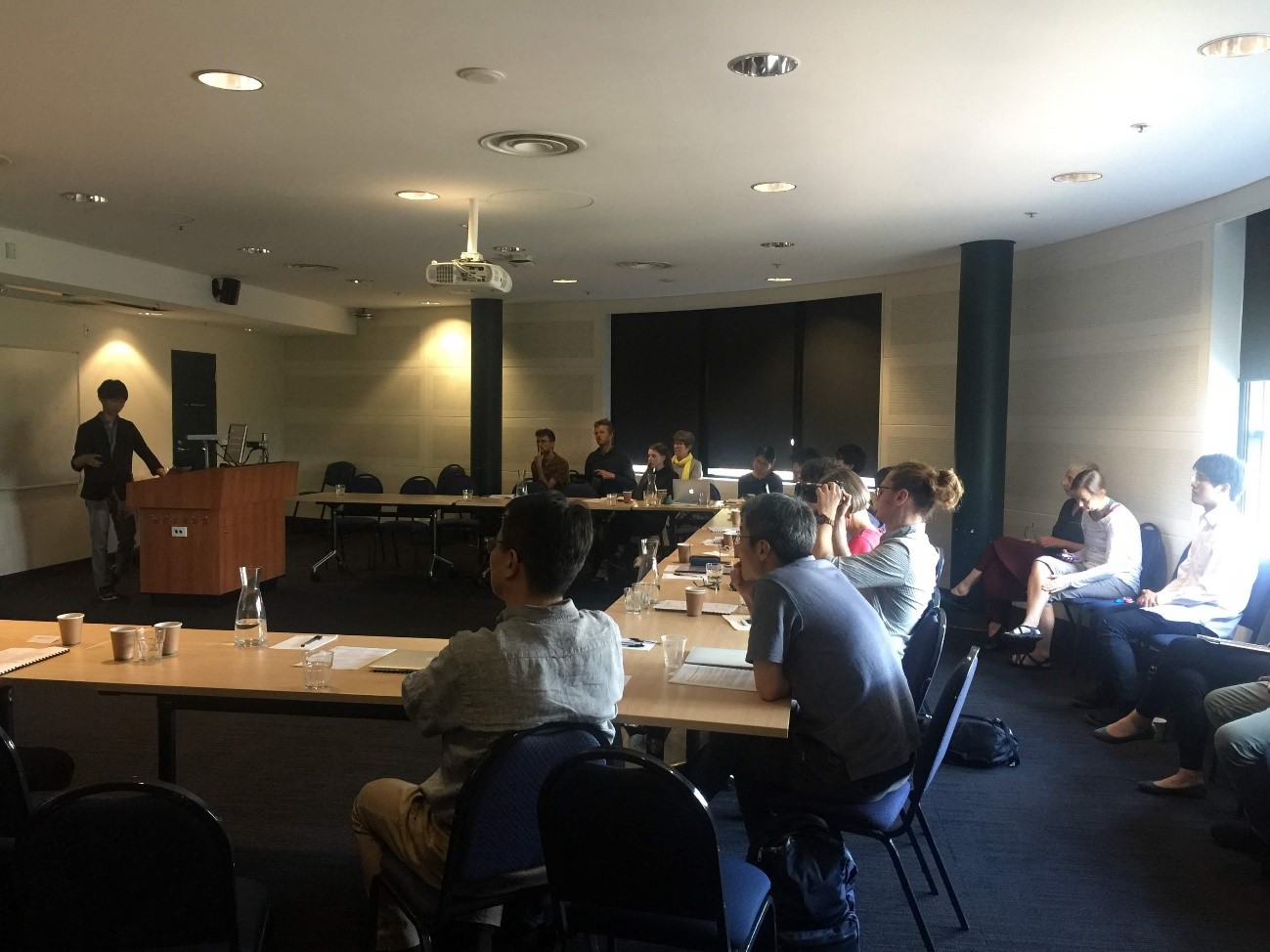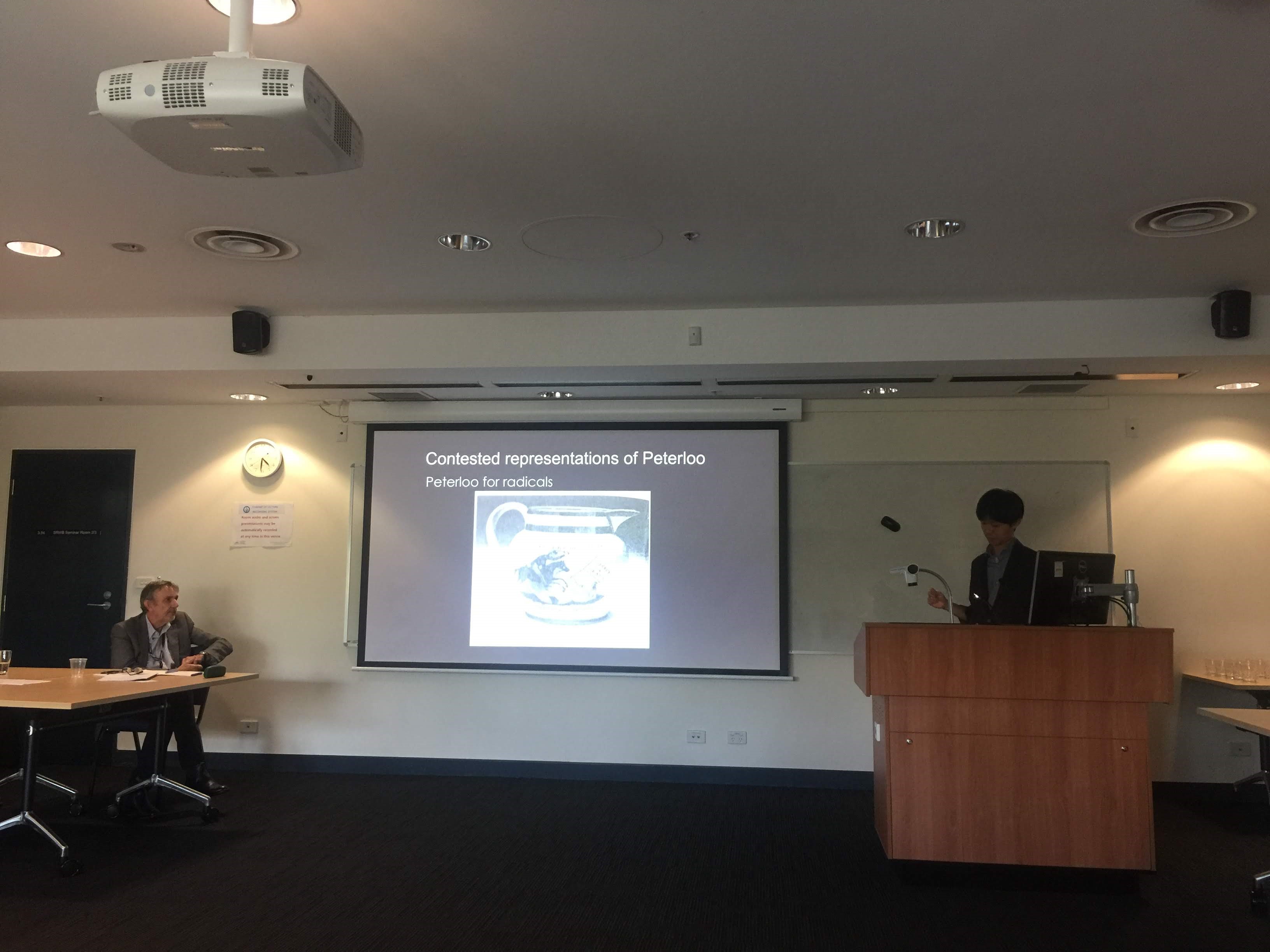【Report】 ANU-PKU-UTokyo Winter Institute 2019 (3)
The Winter Institute 2019 was held at Australia National University, Canberra from 7 to 11 January. The professors and students from ANU, PKU, NYU and UTokyo discussed “History, Culture and Contested Memories: Global ad Local Perspectives”. As it was the first time for me to take part in international conferences, I was feeling a mixture of anxiety and excitement.
The conference began with Professor Masashi Haneda’s paper. Explaining his well-known book Toward Creation of a New World History (2011), Prof. Haneda stressed the sense of belonging to the earth in the (anti-)global age. He also cited the essay of Jeremy Adelman and suggested two aspects of globalization, which is, the integration and the resistance toward it. Finally, he referred to the positionality of historians, which is of critical importance to me because I major in the British history as a Japanese student. I would like to be careful about who I am and whom I am writing to through my academic career.

Based on the sketch depicted by Prof. Haneda, the participants from a broad range of disciplines including history, literature, philosophy, and even computer science made their presentations. Although all of them were interesting for me, the most impressive one was that of Prof. Frank Bongiorno and Mr. Darren Pennay (Social Research Center of ANU) which dealt with the historical consciousness in Australia. Their methodology is very simple. They asked Australians to name the most significant historic events of their lifetimes, the result of which provided a fascinating glimpse of historical consciousness in Australia. To my surprise, the approval of same-sex marriage was most frequently mentioned as one of the most important historical events (30% of all respondents). Next one is the terrorist attack on September 11 2001 at 27%. Their research is significant because it reveals a shared sense of history of Australian people. I hope Japanese scholars carry out similar surveys in Japan, too.
My own presentation was on the fourth day. It was perhaps the busiest day because 12 students delivered presentations in one day! I tried to show how people create the collective memory of a “massacre” and use it as one of their collective identities. For this purpose, I adopted the case study of the so-called “Peterloo Massacre,” which took place in St. Peter’s Field, Manchester on 16th August 1819 when local cavalry charged into a crowd of about 60,000 who had gathered to demand the parliamentary reform. Though I had to devote much time to the preparation and it was both physically and mentally demanding, I am now satisfied with the discussion I had on my research.

The participation in the Winter Institute was a precious occasion for me. The interdisciplinary nature of the Winter Institute enabled me to think about the past in a different way from that historians usually do. As Prof. Bongiorno and Mr. Pennay vividly illustrated, public history is (re-)produced not only from documents in archives but also from media, museums, families, just to list a few. Also, owing mainly to the presentations of participants from UTokyo whose papers were on Japanese history, philosophers, political associations, I became more interested in Japan than before.
Finally, I would like to appreciate all staffs of ANU who prepared such a wonderful event. I received a warm hospitality not only in the conference room but also in the outside recreations such as the reception dinner at National Museum of Australia and the sightseeing tour of National Gallery of Australia. Above all, I am personally grateful to the convenor of Winter Institute, Prof. Paul Pickering. Actually, meeting Paul, who is also a prominent scholar of British history, was the largest reasons that led me to decide to take part in the Winter Institute. His comment on my paper brought a lot of insights on my further research and he even gave me his book with his signature! The Winter Institute 2019 is an unforgettable experience for me.

By Masahiro Konishi (Graduate School of Humanities and Sociology and Faculty of Letters, The University of Tokyo)






